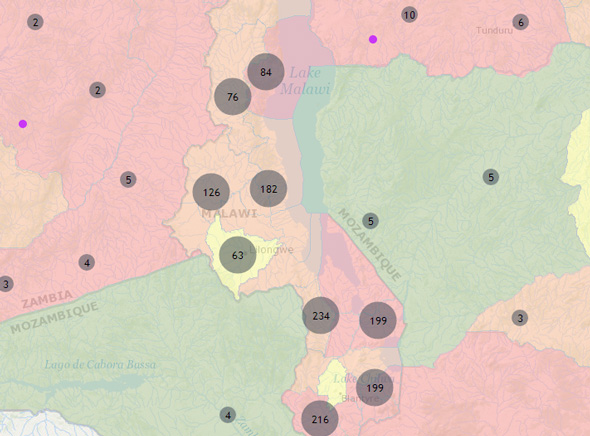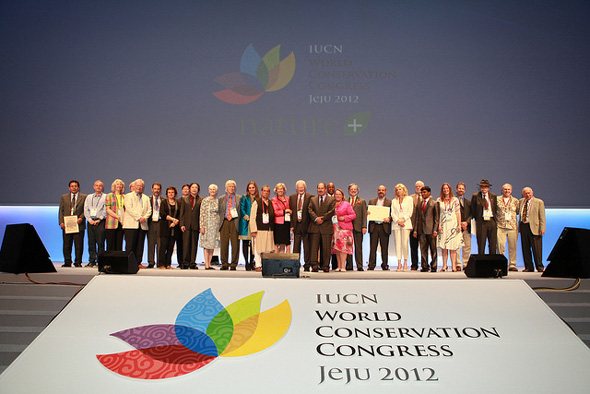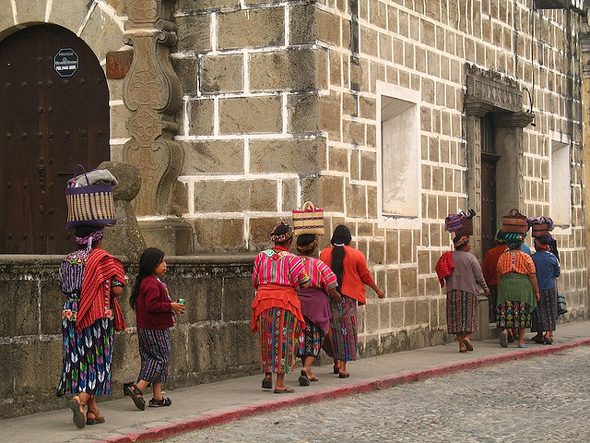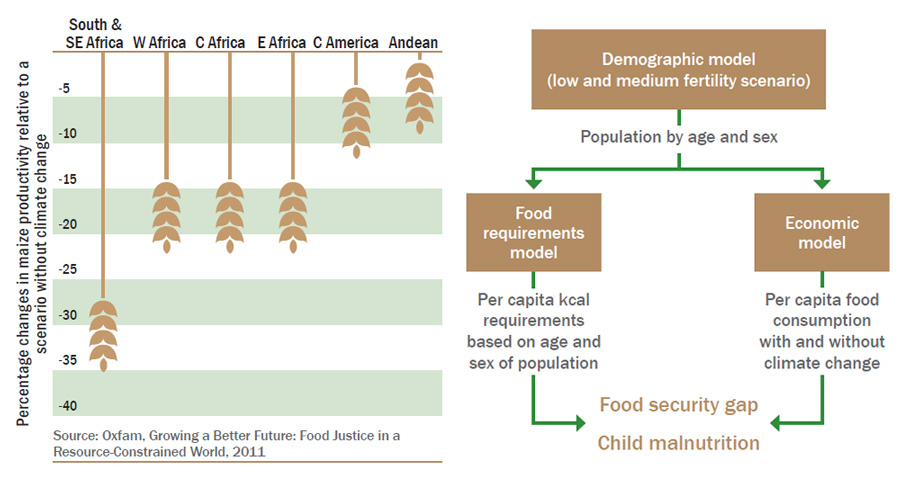-
Tapping the Potential of Displaced Young People in Urban Settings
›
“When young people claim their right to education and health – including sexual and reproductive health – they increase their opportunities to become a powerful force for economic development and positive change,” said Nicole Gaertner, of UN Refugee Agency and the U.S. Department of State, quoting Secretary of State Hilary Clinton at the Wilson Center on December 13. [Video Below]
-
Africa’s Urban Youth Cohort, and Women’s Health in Forest Communities
› As recently discussed by the National Intelligence Council, sub-Saharan Africa is home to both the most rapidly growing populations in the world and its fastest expanding cities. Save the Children’s recent report, Voices From Urban Africa: The Impact of Urban Growth on Children, explores the challenges faced by the continent’s youngest age cohort, revealing what forces are driving children and families to migrate to urban areas and the poverty many are experiencing upon getting there. In response to the report’s findings, the authors recommend training and deploying more health care workers, facilitating public-private dialogue to identify long-term water and sanitation solutions, improving access to jobs and skills training, expanding access to early childhood care, and strengthening the education system to ensure widespread attendance. Compiled from 1,050 interviews, the report is unique for its first-hand accounts of the daily lives of children, their families, and community members.
As recently discussed by the National Intelligence Council, sub-Saharan Africa is home to both the most rapidly growing populations in the world and its fastest expanding cities. Save the Children’s recent report, Voices From Urban Africa: The Impact of Urban Growth on Children, explores the challenges faced by the continent’s youngest age cohort, revealing what forces are driving children and families to migrate to urban areas and the poverty many are experiencing upon getting there. In response to the report’s findings, the authors recommend training and deploying more health care workers, facilitating public-private dialogue to identify long-term water and sanitation solutions, improving access to jobs and skills training, expanding access to early childhood care, and strengthening the education system to ensure widespread attendance. Compiled from 1,050 interviews, the report is unique for its first-hand accounts of the daily lives of children, their families, and community members. -
National Research Council Produces Climate and Security Analysis at Request of U.S. Intelligence Community
›
The CIA may have shut down its dedicated climate change center earlier this year, but a recently released report sponsored by the intelligence community reaffirms the deep connection between climate change and national security. New threats to U.S. national security – like increased food and water insecurity and more natural disasters requiring humanitarian assistance – have emerged as climate change creates unprecedented changes in the global environment.
-
CCAPS Looks to Map Climate-Related Aid in Africa
›
Adapting to the effects of climate change is increasingly becoming an important component of many international development efforts. But how that integration occurs and what it looks like is an open question. To help answer that, the Climate Change and African Political Stability Program (CCAPS) at the University of Texas at Austin recently released a new database that for the first time tracks all the climate-related aid in one country – Malawi.
-
Climate Change’s Health Impacts, and the Rights-Based Argument for Family Planning
› UNFPA’s recently released State of World Population 2012 brings family planning to the center of the development debate. “There is indisputable evidence that when family planning is integrated into broader economic and social development initiatives, it can have a positive multiplier effect on human development and the well-being of entire nations,” the authors write. The report employs a rights-based approach to make the case for universal access to family planning – a goal which we are far from as 222 million women from the developing world currently have an unmet need for modern contraceptives. Meeting this need and improving quality of reproductive healthcare elsewhere would cost an additional $4.1 billion a year, but save approximately $5.7 billion in maternal and newborn health services. Other recommendations include increasing financial support and political commitment to ensure that family planning is of high quality, reducing the number of unintended pregnancies and abortions, including emergency contraception in family planning services, and engaging boys and men.
UNFPA’s recently released State of World Population 2012 brings family planning to the center of the development debate. “There is indisputable evidence that when family planning is integrated into broader economic and social development initiatives, it can have a positive multiplier effect on human development and the well-being of entire nations,” the authors write. The report employs a rights-based approach to make the case for universal access to family planning – a goal which we are far from as 222 million women from the developing world currently have an unmet need for modern contraceptives. Meeting this need and improving quality of reproductive healthcare elsewhere would cost an additional $4.1 billion a year, but save approximately $5.7 billion in maternal and newborn health services. Other recommendations include increasing financial support and political commitment to ensure that family planning is of high quality, reducing the number of unintended pregnancies and abortions, including emergency contraception in family planning services, and engaging boys and men. -
Linking the Environment and Women’s Health at the World Conservation Congress
›November 30, 2012 // By Payal Chandiramani
People don’t often think of gender issues when they think of the environment, but in fact sustainable development in many of the world’s most bio-diverse regions has a lot to do with women’s health and well-being.
At this year’s World Conservation Congress, where the theme was improving the inherent resilience of nature, ECSP’s Sandeep Bathala presented alongside Blue Ventures’ Gildas Andriamalala about the connections between women’s health and the environment – specifically on the potential of population, health, and environment (PHE) approaches as an effective sustainable development strategy.
-
Feminized Development in Latin America: Understanding the Confluence of Gender Equity and Cultural Tensions
›
Poverty in Latin America has become increasingly “feminized,” said John Coonrod, executive vice president of The Hunger Project, at the Wilson Center on October 22. As a result, many governments and NGOs are starting to focus on the needs of women, especially indigenous women. [Video Below]
-
Can Family Planning Save Millions From Malnutrition in a Warming World?
›As the effects of climate change become increasingly apparent, existing poverty and human security challenges are being compounded. Among them, food security is one of the most pressing, especially in the developing world.
Based on a model developed by researchers at Futures Group, a pilot project in Ethiopia reveals that a lower fertility track for some countries could help compensate for the negative effects of climate change on agricultural yields. The study, conducted by MEASURE Evaluation and funded by USAID and The David and Lucile Packard Foundation, suggests incorporating family planning into existing climate change adaptation strategies.
Showing posts by Payal Chandiramani.











